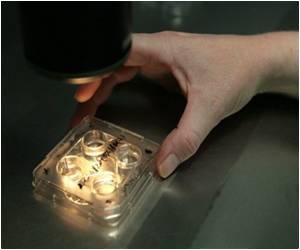
The concept took a leap forward after the Government announced a public consultation on whether the law should be changed to allow the technique.
It involves taking healthy DNA from a mother's egg, either before or after fertilisation, and transferring it into an egg donated by another woman.
This egg is then implanted into the mother to avoid passing on faults in her mitochondria, the tiny "batteries" that power cells.
In theory the child would then have genetic material from its mother, father and the donor. However, it would not inherit the donor's characteristics.
The procedure has caused an ethical storm, with critics warning it is creating "hybrid" children and could have unknown risks for future generations.
Advertisement
Mitochondria are sausage-shaped powerhouses which float around inside cells converting food into energy the body can use. Each contains a tiny strand of DNA, around 37 of the 23,000 human genes, which is passed on by the mother.
Advertisement
These affect around one in 5,000 children, causing symptoms such as blindness, deafness, heart and kidney problems and early-onset dementia. Many sufferers die before reaching adulthood.
If the mother's damaged mitochondria could be cut out of the fertilisation process, it is hoped genetic diseases could be prevented, saving 100 lives a year.
Doug Turnbull from Newcastle University, who pioneered the technique, said he believed the first patients would begin treatment in two to three years.
"This has the possibility of stopping the disease and stopping it in the next generations as well," the Daily Mail quoted Turnbull as saying.
"Every year we see hundreds of patients whose lives are seriously affected by mitochondrial diseases. We want to make a major difference to their lives.
"This has the possibility of stopping disease and stopping it in the next generations as well," he added.
Source-ANI











